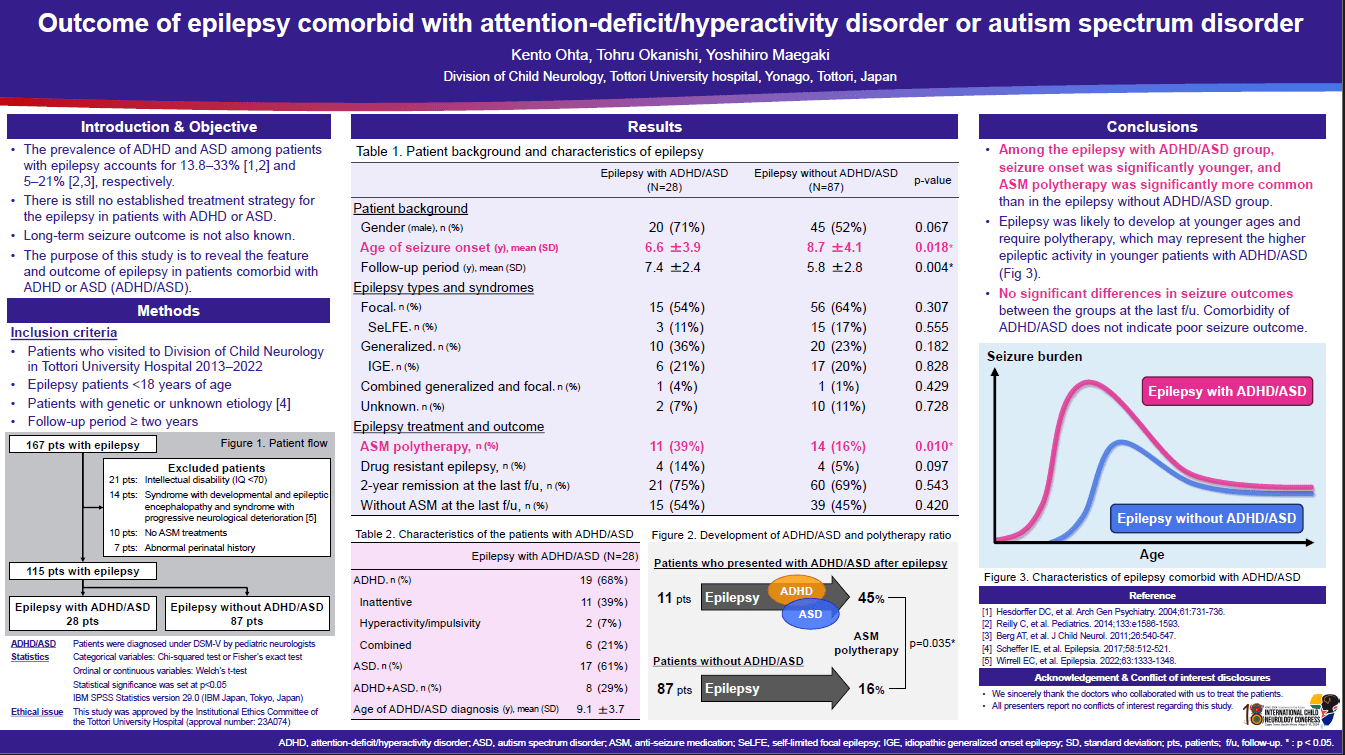Outcome Of Epilepsy Comorbid with Attention-deficit/Hyperactivity Disorder Or Autism Spectrum Disorder
Introduction: The purpose of this study is to reveal the neurological outcome of patients with epilepsy comorbid with attention-deficit/hyperactivity disorder (ADHD) or autistic spectrum disorder (ASD). Methods: Among patients with epilepsy younger than 18 years of age who visited our hospital between 2013 and 2022, patients with follow-up period were at least two years and whose etiology of epilepsy (Scheffer IE, Epilepsia, 2017) was unknown or genetic were included. Exclusion criteria were patients with intellectual disability, abnormal perinatal history, no prescription of antiseizure medication (ASM), and syndrome with developmental and epileptic encephalopathy and syndrome with progressive neurological deterioration (Wirrell EC, Epilepsia, 2022). Eligible patients were divided into comorbid group (comorbid with ADHD or ASD) and non-comorbid group (others). Results: There were 28 patients in the comorbid group and 87 patients in the non-comorbid group. Epilepsy syndromes were not significantly different between the two groups. The mean age of onset of epilepsy was significantly lower in the comorbid group (6.6 ± 3.9 years old) than in the non-comorbid group (8.7 ± 4.1 years old) (p=0.018). Patients requiring two or more ASMs were significantly more common in the comorbid group (39%) than in the non-comorbid group (16%) (p=0.010). At last follow-up, there was no significant difference in the number of patients who had achieved 2-year seizure remission and completed ASM discontinuation. Conclusion: Patients comorbid with ADHD or ASD tended to develop epilepsy at a younger age and require multiple ASM, although the outcome of epilepsy did not differ between the two groups.
Kento Ohta
Tottori University hospital
Japan
Tohru Okanishi
Tottori University hospital
Japan
Yoshihiro Maegaki
Tottori University hospital
Japan

Kento Ohta
Tottori University hospital
Japan